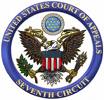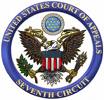“And He Causeth All, Both Small and Great, Rich and Poor, Free and Bond, to Receive a Mark”
 So says Revelation 13:16. There are many interpretations of the wild events recounted in the Revelation to John. I am most familiar — and comfortable — with the view of the book as an allegory about persecution and redemption, but some folks think that it describes, in some more or less literal way, events that are still to occur.
So says Revelation 13:16. There are many interpretations of the wild events recounted in the Revelation to John. I am most familiar — and comfortable — with the view of the book as an allegory about persecution and redemption, but some folks think that it describes, in some more or less literal way, events that are still to occur.
I don’t know what the Amish view is but they — and certain other denominations — apparently read the text as calling for believers to resist receiving the forecast mark of the beast. This lawsuit, brought in federal court in Michigan, seeks relief from the federally sponsored program (voluntary for the states, but now adopted in Michigan) that requires the placing of RFID chips in cattle to facilitate the tracking of bovine and other livestock diseases. The plaintiffs make a variety of administrative law claims, as well as claims under the National Environmental Policy Act and the Fifth Amendment, but I’m interested in the claims made under the federal Religious Freedoms Restoration Act (RFRA) and a “supplemental” claim under the Michigan Constitution’s Free Exercise Clause. The requisite chips are claimed to require the plaintiffs to take the mark of the beast or to infringe their divinely ordained dominion over the cattle and all other living things. (Genesis 1:26-28.)
We know that the federal RFRA cannot be applied to the states. The plaintiffs try to get around that by arguing that Michigan is acting to implement federal law (and, it seems, receiving some type of federal grant in return for participation in the program, although the complaint is a bit unclear). If the feds are mandating this in some way as a condition of federal funding, then RFRA may apply.


